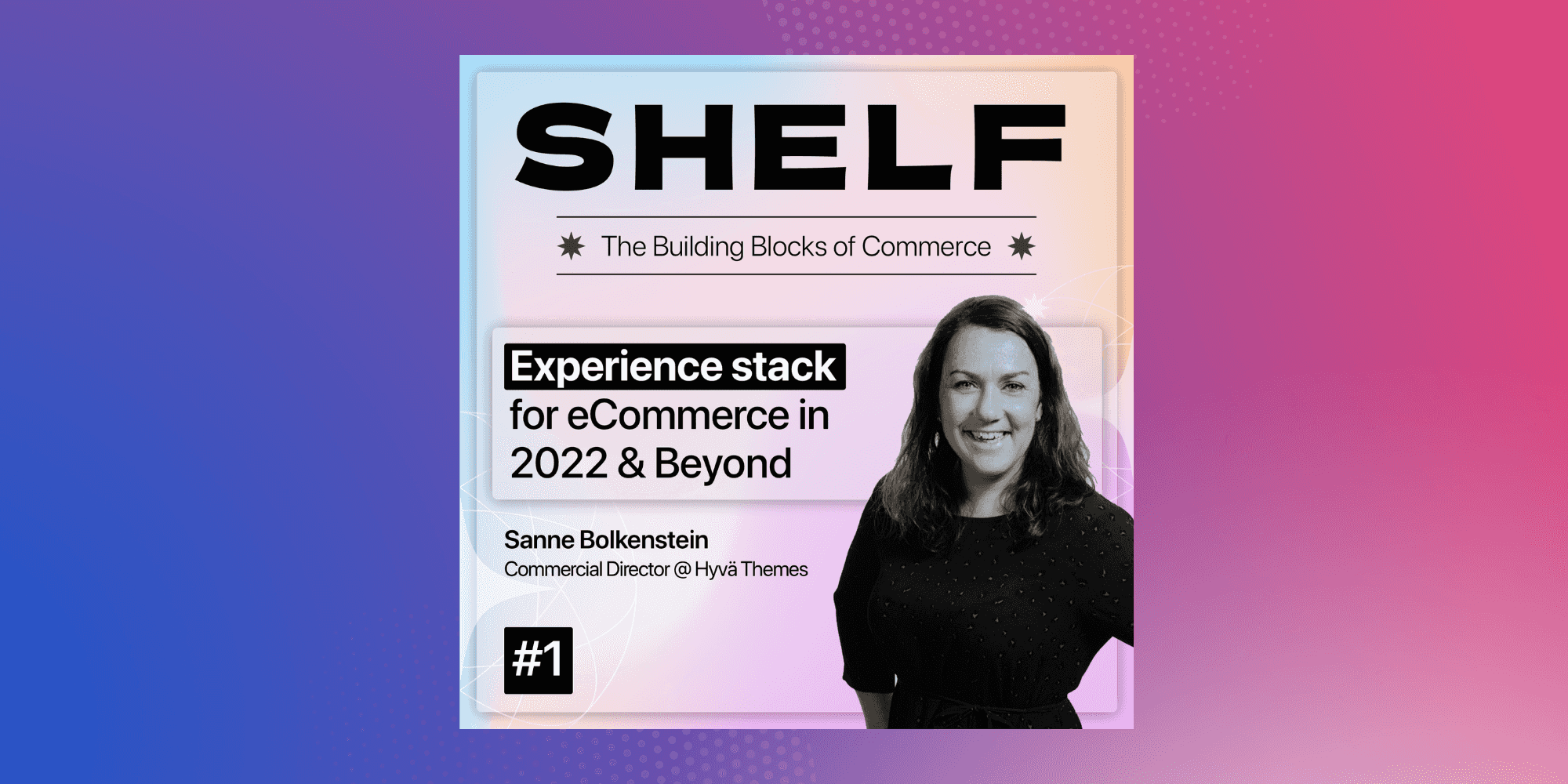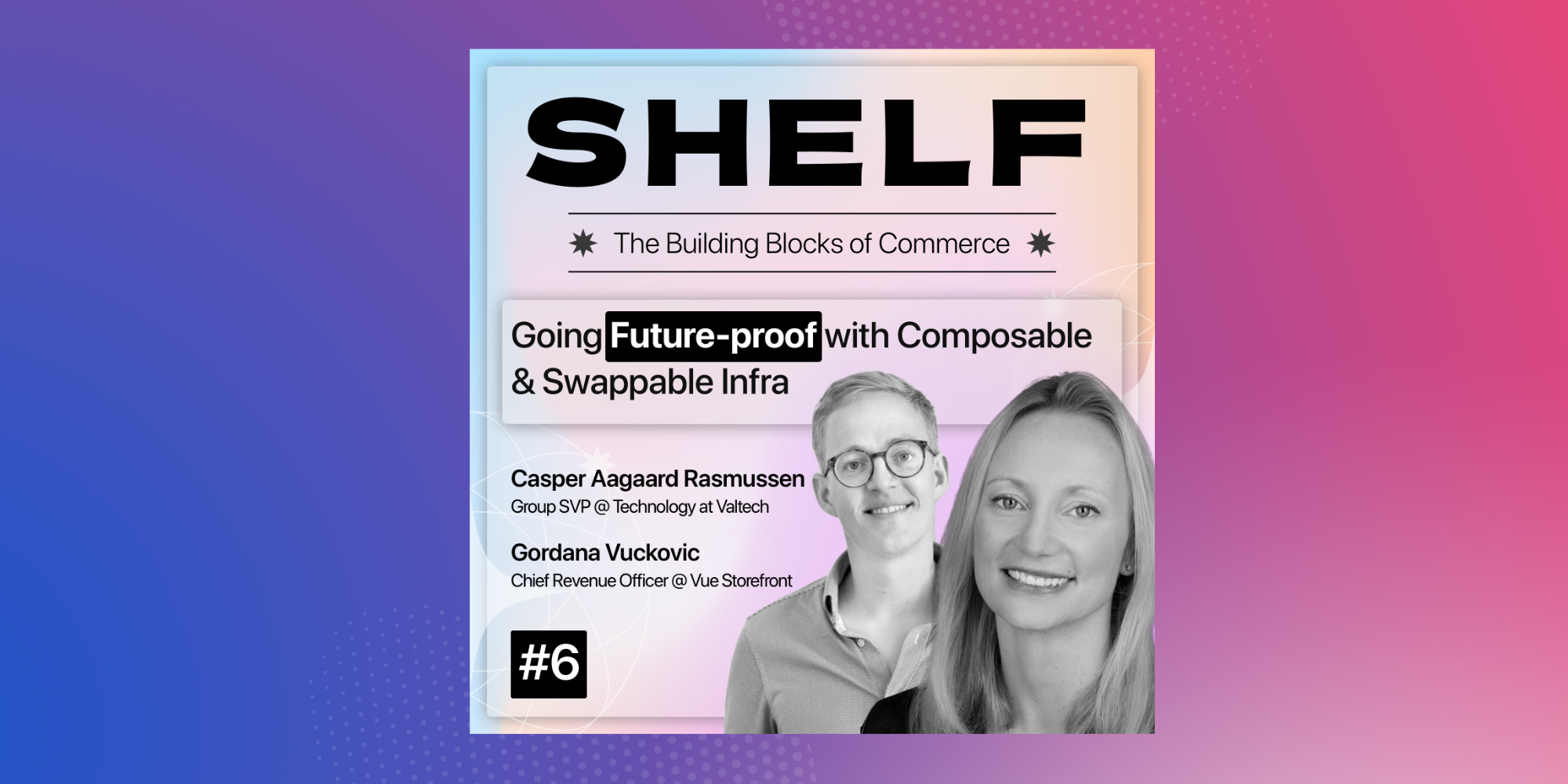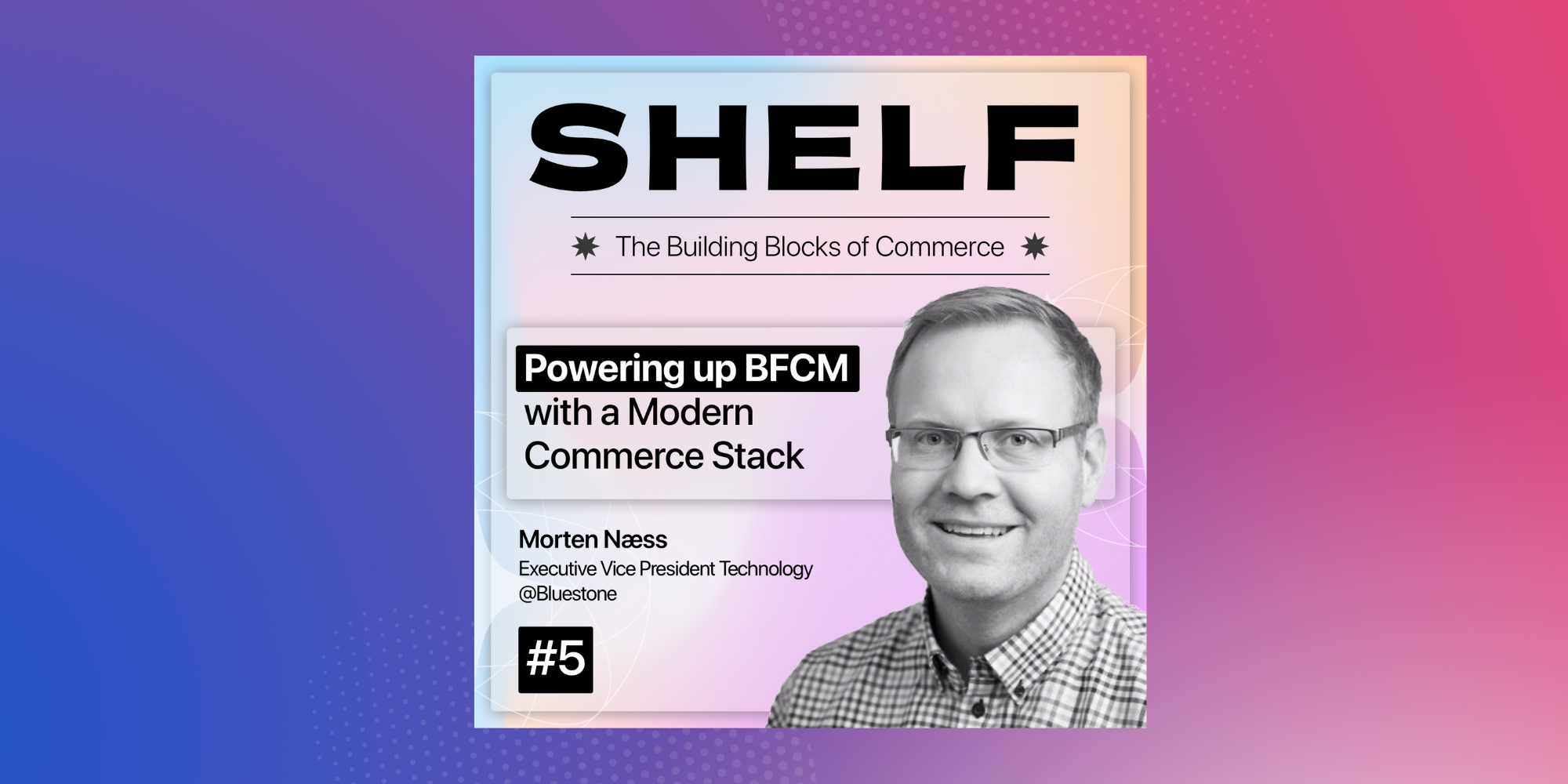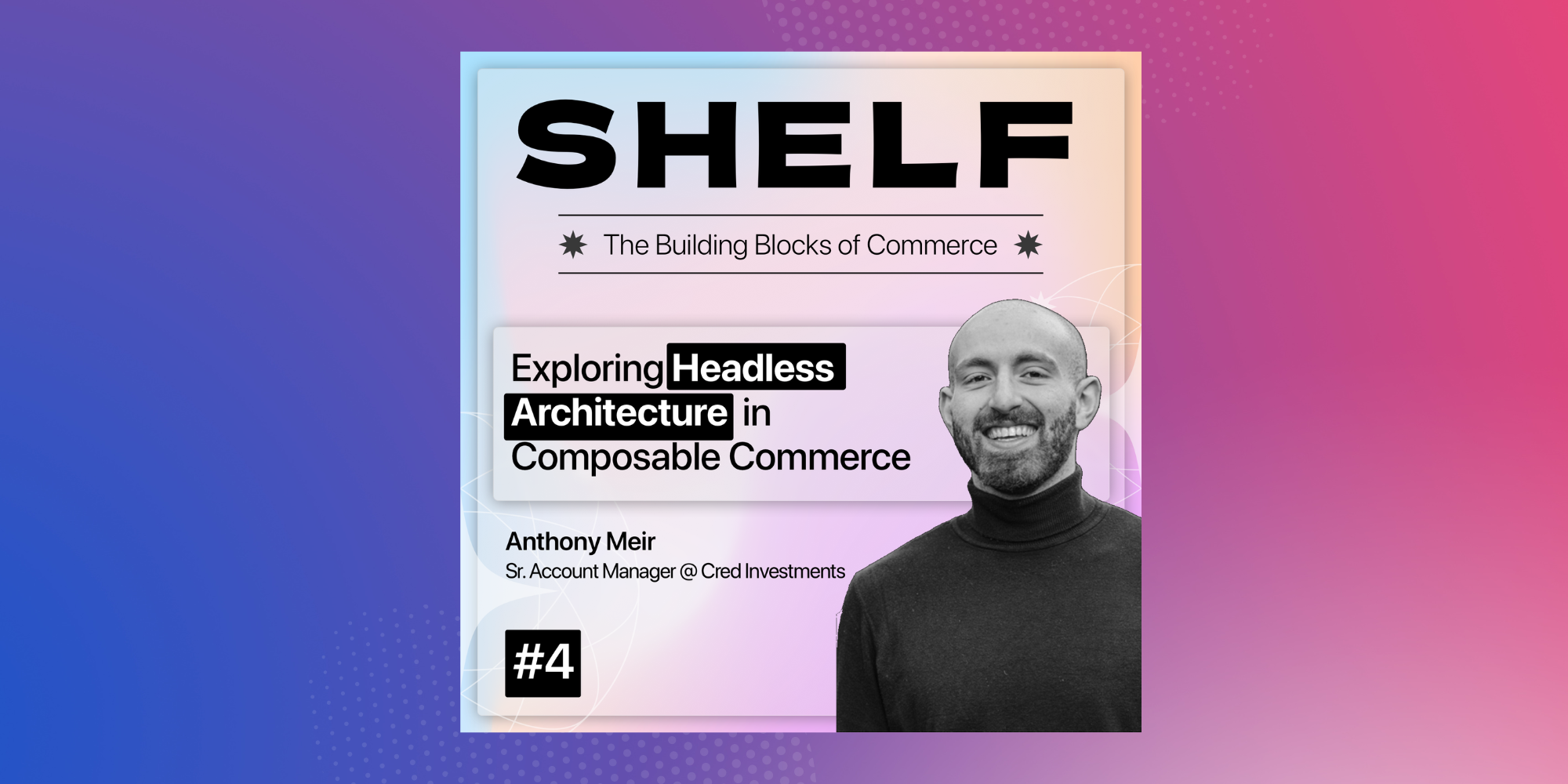Commerce systems come in various types - they can be both monolithic and composable - today. Today we are joined by Sanne Bolkenstein, who is the Commercial Director at Hyvä - and working to revolutionize Magento for commerce - to dive into the experience stack of eCommerce in 2023 and beyond. We discuss the challenges and new developments in e-commerce technology that could change the game for brands & retailers in the coming months.
💬 Key Takeaways from the Conversation
- In an increasingly remote and globalized world, the human aspect of technology becomes more significant. As physical interactions become less common, the social aspect should not be neglected.
- When selecting a technology, it is recommended to consider the community that supports and surrounds that technology.
- When considering composable versus monolithic commerce solutions, the decision should be based on factors such as scalability, desired outcomes, and balancing current investments. Both approaches have their own strengths to consider.
🎙 Dive into the conversation
Kausambi
We're so, so excited to have you, and we'll just get started – diving into the experience stack for commerce for the new year.
Sanne, Tell us a bit about your journey, how you reached where you are, and why do you like helping e-commerce teams grow?
Sanne
Yeah, thank you very much for having me here. I'm very happy to be here today. So yeah, my journey has indeed been quite interesting, I think, for people coming from a small startup enterprise in rural Africa to working for big tech companies here in Europe. For me, it has always been about entrepreneurship, though I like being involved with innovation, I like to be challenged in the modern days.
I've been working with a hosting company for eight years, so I have a lot of experience working with merchants, but also e-commerce agencies. And as I like to put it, I've sort of matured together with the market. So when I first started working at Hyper Node, I was still very young.
But the market itself was also still very young. Magento just was just launched in the Netherlands, and it was really kind of a fun game kind of environment where you can explore everything and where there's also lots of demand because there wasn't really a good e-commerce solution. E-commerce as a whole was just beginning to flourish, and now if you look at the landscape, there are so many different tech providers, there are so many different kinds of retailers that sell online, and the variety is huge, but also it's more mature in the way that there are more budgets, there's more revenue to go through it, there are more different specializations.
So there's also a lot more to keep up with, for sure.
Kausambi
And especially in retail and e-commerce, it's like every single year since 2019 has been so different. And, of course, before that too. But it just goes to show how things are so dynamic and things change so much.
What is the right choice for you as a business, and why now?
Sanne
So there's not like one goal, the true one golden standard that you see adhere to it and you never have any problems anymore. Every solution has its pros and cons, and even though you might not have the most technical background, there's still a lot that you can learn and a lot that you can know. And that is one thing that the pandemic has shown is that, well, you know, e-commerce as a whole was growing, that whole the baseline that we were living on all of a sudden got bumped like by 20, 30%.
That changes the whole playing field. So all of a sudden, like your audience is bigger, but also the order volumes are bigger, your reaches bigger, you need to think about logistics. There are so many things that come to consider when you're growing scale.
And then that shows that the weakest point in any e-commerce setup is actually the technology because that's usually the thing that we all rely on and that the least people know something about. And I am really much in favor of trying to change that, taking away all the complicated language from it, really simplifying it, comparing it to day-to-day experiences.
This is not something that should be taken by one or two people, but it's really a combined responsibility of the management of an e-commerce agency or an e-commerce retailer that is so vital for the success of your whole operation that you cannot afford not to know about it. You might not know all the specifics, but you need to know at some level what you're doing and why you're doing it, and also what you can do if it's no longer sufficient.
And yeah, that is something that I personally also find very triggering to me that I was like, okay, I cannot rely on other people's opinions anymore. I have to for my own opinion.
Kausambi
We hear monoliths, and we hear composable be like that's like two sides of a coin, say, help our audience kind of understand that in a very simple way with some examples. Help demystify what those monoliths mean and what's composable.
Sanne
Yes, sure. So a monolith is what we refer to for any kind of software. That is what we say, all-encompassing. So it's, for instance, Magento that we work with that deals with systems like Shopify or BigCommerce that say, okay, you you buy or you download the version of this software, and then you can basically set up your e-commerce environments so you have a front end where visitors come to visit, you have a product catalog, you have pricing options, you have a checkout, you have a search module, you have an integration with Facebook, etc. All the things that you need to set up an e-commerce environment are there, but monolith itself also has limitations because
It's built or it's developed by a person or a company or a set of developers. That means that you're always going to have run into restrictions of that model. So it could be that you want to implement, for instance, you have your own inventories stemming, you want to integrate that. And that means that you need to have some sort of connection between that inventory system and your e-commerce alignment that is not really there out of the box.
Composable commerce is a relatively new term that says we have to get rid of these huge blogs, their legacy. So what we do is we have we call microservices. So you have search, you have product catalog, you have pricing indexation.
And these are all separate pieces of software that run independently from each other and we connect them to each other via both the use this term mostly used as middleware and so that when you want to change something, add something, etc., you don't do that directly in the e-commerce system itself, but you do. You just connected to the middleware and the middleware that connects it to all the other pieces of software that are relevant.
So compose it commerce. It can be seen quite literally as like pieces of Lego, which are kind of building your own store today. They are really posts opposite.
Kausambi
I love that you spoke about my favorite thing, Legos, and I totally use that so much to explain. Composable to people. So I'm so excited that you did the same.
So what is the decision-making criteria? You know, three or four or five questions in a way, a checklist you know – that I as a brand owner, as a as a brand team, we should go through so that we take the right decision.
Sanne
Sure. So, first of all, I would like to say that fortunately, there's no silver bullet that solves everything. So what you're talking about, if you're moving into different geographies, you're talking about displaying different kind of products. But that doesn't really end there, right? Because you have different currencies. You probably have local payment methods that you want to include.
But there's also things like cultural differences, right? That's the way that you describe your product, the way that you address your audience, all these kind of things. It's not just language, it's also cultural. I mean, that can go into like what kind of models do you use on your site? What kind of body size do they have, etc., etc.?
So it's there's always a lot of things that people don't necessarily think about in the first instance, but are definitely you have to take into consideration and no matter what kind of solution you're going to choose, there's always going to be pros and cons. It's never just clean sheets, so be prepared for that. One thing that I find is that very often people think of a solution and then sort of go back to the problem that they want to solve.
So take your time, talk to different kind of people, talk to different kinds of solutions, inform yourself, visit blogs, have your developers participate in community discussions.
So you need to make sure that, you know, you have if you know what you're going to do, if you if you know what you want to do revenue-wise and profit wise, then calculate back. What is it that you actually have available to achieve that and make sure that it balances out seems quite simple, but a lot of people still think that for little money, they could quickly make a lot in return.
Kausambi
Absolutely. You've been in the space and looking at solutions and literally breathing this day in and out and solving problems for merchants. What are some of the solutions that to think are technology solutions that you think are reshaping the space to date and things that you are looking out for, that you're keeping an eye that, hey, like in the near future or in the far future, these are some of the companies that will make the difference.
Sanne
Yeah. I find very interesting development, artificial intelligence (AI) and the different ways that that can be applied in e-commerce. I've recently done a webinar over on Artificial Intelligence where we see that there are some standard examples of you trying some clothes on in front of the camera and then, you know, the shop returning to the image. And I think in the future there's going to be so many more applications of AI in eCommerce that it is something that should really be on the lookout for.
Other than that, I think there's definitely technology suppliers that are really trying to innovate against something that we do. But there's also search engines that do that. Like I have very good experience with Algolia, for instance, that really improve customer experience and constantly on top of things. So yeah, it's I would say those are the two most interesting things, developments going on in the in the environment right now.
Kausambi
Yeah. And you mentioned something about the experience and how I am generated way I can kind of like change the way consumers are experiencing retail. And that leads me to this thought.
So mobile and multi-channel and omnichannel shopping experiences, just apart from the shop-shopping — how do you think some of these experiences first front current solutions and changes that you are noticing in the ecosystem? How does Composability play a big role there?
Sanne
Well, yeah, like you said, of course, we are browsing now more and more different devices. There is a crossover between online and offline retail. So of course this is something you need to think about, but this is also something that e-commerce systems in general think about because they also foresee that, for instance, mobile traffic increases every year, there's no widgets that have like 90 or even close to 100% of traffic that goes through mobile.
So of course, you need to have a good experience on mobile as well as on desktop and laptop. You cannot really afford to not be responsive, for instance, because that will cost you customers instantly. But again, that's what I said before. If you're talking about solutions versus problems, if you notice that most of your traffic is through mobile, then find out how you can deliver the best mobile experience to your customers.
And there's a lot of decisions that you can take as a merchant to influence that performance. Like I said before, you need to make sure that you choose the right software that is also mobile-friendly. But there's also a lot that you can do. For instance, do you need a check box on the whole page to say that that's something that you want but that's seriously costing you performance?
So again, make sure that you solve the problem, and you don't buy the solution, and then see how it fits the problem that you're encountering.
Kausambi
I have one final question before we kind of wrap up this conversation. What are some of these trends that you're seeing that will actually impact and change commerce in the future in the next decade or more?
Sanne
So actually, to go back to the previous question, I think the role of developers becomes more crucial in the future. And I find it very interesting to see how this adapters tend to not only work with software that they like working with, but it's also at least for Magento. But I think for other technology as well, very much about the community.
So it's definitely not just a work thing, it's also there's a big social aspect to it and that you can see in conversations or lines from Slack or GitHub or they are different kind of platforms, but also offline at like developer events or regular events, hackathons, whatever, where people get together and you see that they are so like engaged with the product but also with each other.
And I think there's the human aspect of technology is going to be even more important in the future as we become more remote and we work globally. So it's not that common anymore to interact with each other physically. The social aspect is something that you should definitely not neglect. So when you're choosing a technology, I would really suggest also looking into the community that is behind that technology.
When it comes to composable versus a monolith, this is something that is kind of separate from that discussion. I think there's a market for both. I think that composable commerce can really solve some critical issues for especially large retailers that are running into the restrictions of their monoliths. But I also think there's a very big group of as a me as a B plus and to even enterprise level clients or online retailers that won't really benefit from composable commerce because it's just an overengineered and over costly solution for a problem that they could also solve with a monolith. Each has their own strengths.
Kausambi
And that's a wrap. Thank you so much. Lot of learning and I would love to bring you back on another episode sometime in the next few months and follow up on probably a deeper dive into a use case.
I love the Lego analogy there, but also how as a merchant, you see your own family, you look at your own retail growth strategies, your own business goals, and then take the decision to go one way or the other. But keeping time is a very important factor, as well as budgeting, important factor in mind, apart from the benefits of the use cases and flexibility that do get right.
And finally, wrapping up with a view on the ecosystem, how there's definitely the possibility of different kinds of frameworks to exist, and why some frameworks might just not be right for you at the stage that you are as a company.
Thank you so much. A lot of learning. That's a wrap for episode one.





